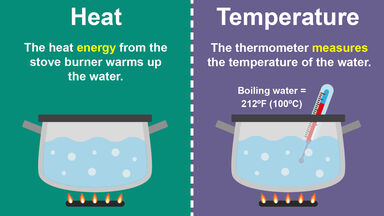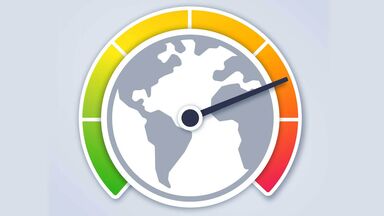Temperature Definition
tĕmpər-ə-cho͝or, -chər, tĕmprə-
temperatures
noun
The degree of hotness or coldness of a body or environment.
American Heritage Medicine
Temperament.
Webster's New World
A measure of the quantity of heat in an object, usually as measured on a thermometer.
Webster's New World
A measure of the average kinetic energy of the particles in a sample of matter, expressed in terms of units or degrees designated on a standard scale.
American Heritage Medicine
An abnormally high condition of body heat caused by illness; a fever.
American Heritage Medicine
Synonyms:
- fahrenheit
- centigrade
- degrees below zero
- degrees above zero
- degrees of temperature
- thermal reading
- weather condition
- body-heat
- warmth
- cold
- heat
- climatic characteristic
Other Word Forms of Temperature
Noun
Singular:
temperaturePlural:
temperaturesOrigin of Temperature
-
Middle English temperate weather Latin temperātūra due measure from temperātus past participle of temperāre to mix temper
From American Heritage Dictionary of the English Language, 5th Edition
-
From French température and its source Latin temperatura, from the past participle stem of tempero (“I temper").
From Wiktionary
Related Articles
Temperature Is Also Mentioned In
Find Similar Words
Find similar words to temperature using the buttons below.





